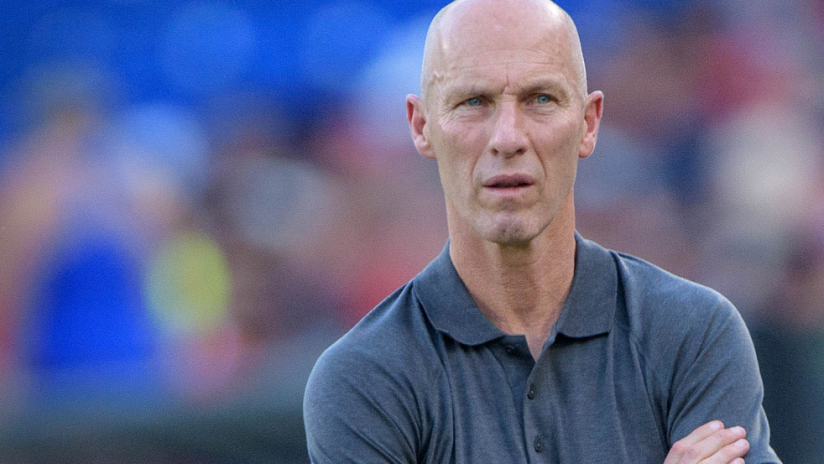When LAFC acquired Christian Ramirez at the beginning of August, it created a logjam of three quality strikers on a roster that had been playing with one center forward all season.
It was a good problem to have, but a problem nonetheless.
Assumptions were made upon Ramirez's arrival about incumbents Marco Urena and Adama Diomande: Does this mean Urena is about to be traded or sold? Does this mean Diamonde's injury issues are more serious than first thought? Does this mean Bradley is considering a two-striker system?
Urena has gone nowhere. Diomande has featured again, though has been battling minor injuries throughout. And the team have lined up in their customary 4-3-3 formation in each game. Here's how Bradley has, so far, managed his striker situation across six games.
Player |
Apps |
Not in 18 |
G |
A |
|---|---|---|---|---|
Christian Ramirez |
3 (2) |
0 |
2 |
0 |
Marco Urena |
3 (0) |
1 |
1 |
0 |
Adama Diomande |
0 (1) |
4 |
0 |
1 |
It's worth noting that the trio haven't appeared in an 18-player gameday roster together once, though Diomande's absences have been more injury-driven than tactical. His lone appearance of the six games came as a substitute vs. Colorado on Aug. 19, he hasn't made the matchday squad since and is listed for questionable for Saturday's game against the San Jose Earthquakes (3:30 pm ET | Univision, Twitter - full TV and streaming info).
LAFC sit in third place in the Western Conference, three points behind FC Dallas in the hunt to finish in the top two and earn a first-round bye in the postseason, but just three ahead of the fifth-place Seattle Sounders in pursuit of the right to host a Knockout Round playoff game as the third- or fourth-place side. Their position is precarious, though they are trending upwards. LAFC are 3-1-2 since Ramirez was acquired and none of their three strikers are particularly lighting it up. Despite already having one of the league's best attacks, LAFC have room to get even better.
Before Ramirez arrived, Bradley ostensibly kept his decisions simple: Play the hot hand.
When Diomande was scoring in bunches, Urena's return from the World Cup couldn't displace him; when Latif Blessing enjoyed great form, he continued to play. After Ramirez scored a brace, he started the next two games. Then he went cold and Urena got another chance. If nothing else, Bradley seems to have instituted a culture of meritocracy: If your performances warrant minutes, you'll get minutes, no matter your price tag.
With six games remaining, Bradley could further tinker with his plans. Or, one of the three entirely capable players could get hot and make the decision easy.
Maybe this good problem isn't so bad.













